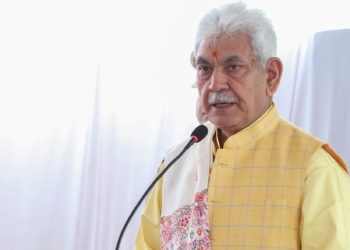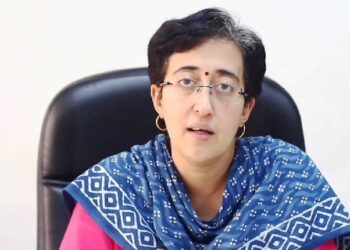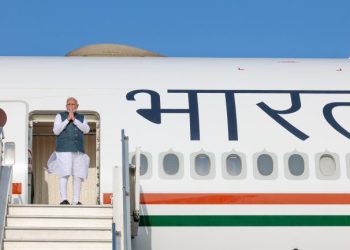New Delhi: Chief Justice N.V. Ramana on Saturday said that chief ministers of various state governments have assured that adequate security will be provided at court complexes across the country.
The Chief Justice along with Union Law Minister Kiren Rijiju was briefing the press on developments in the meeting held with chief ministers and chief justices of high courts.
The Chief Justice, while responding to a query on breach in security at court complexes, said: “I have raised that issue with chief ministers. They assured that they will provide adequate security… in Jammu and Kashmir there is a system, two level protection system, which we suggested for other courts also.”
On the aspect of use of local language in courts, Rijiju said as a matter of policy, the government will give importance to use of local languages in judiciary and as well as education, especially technical education, which is only in English in the country.
“It is a process which requires wider consultation with the judiciary… languages in the court, not only in argument but for order and judgment, will require approval from the Chief Justice of India. So that is why it needs a wider consultation,” said Rijiju.
Earlier in the day, Prime Minister Narendra Modi made a strong pitch for use of local languages in courts, saying that it will increase the confidence of common citizens in the justice system and they will feel more connected to it.
The Chief Justice, on aspect of usage of local language in courts, said, “This is a very serious issue, the problem is the demands for implementation of regional language, particularly in Tamil Nadu, some politician mentioned about Gujarat also but I am not sure. Tamil Nadu particularly wants to implement a regional language.”
Justice Ramana added that earlier a request came in 2014, when he joined the Supreme Court, which was rejected by the full court and after that there has been concrete proposal before the apex court so far.
He added that there are a lot of hurdles and hiccups in the implementation of regional languages, the reason is that some judges are not familiar with the local language, as they come from another state.
Justice Ramana added that currently there is no technology to translate the entire court record into local language, though Artificial Intelligence (AI) was used but it did not materialize. “One day, we cannot implement a reform… slowly over a period of time it will happen,” added the Chief Justice.
Rijiju said a resolution passed in chief justices’ conference to create a National Judicial Infrastructure Development Authority was received with reservations by some chief ministers.
“One of the resolutions (in the chief justices’ conference) passed, was to create a National Judicial Infrastructure Development Authority. For that, some of the CMs could not agree with the present setup,” he said.
Rijiju added, however, an agreement was reached that a body would be created at the state level with chief ministers and chief justices or their nominees on board for the infrastructure development. He further added, “I’m happy the CMs and Chief Justice have agreed that the body will be created at the state level with their involvement.”
Earlier during the day, the Chief Justice said: “To standardize and improve judicial infrastructure, I have been focusing on the creation of special purpose vehicles, namely, the National Judicial Infrastructure Authority and the State Judicial Infrastructure Authorities in the lines of NALSA and SLSAs.
He added, “The time has come to move on from the present ad-hoc committees to a more streamlined, accountable and organised structure. The proposed authorities will have representation from all the stakeholders. It must, however, be acknowledged that it is the judiciary which understands best its own needs and requirements.”
(IANS)



















